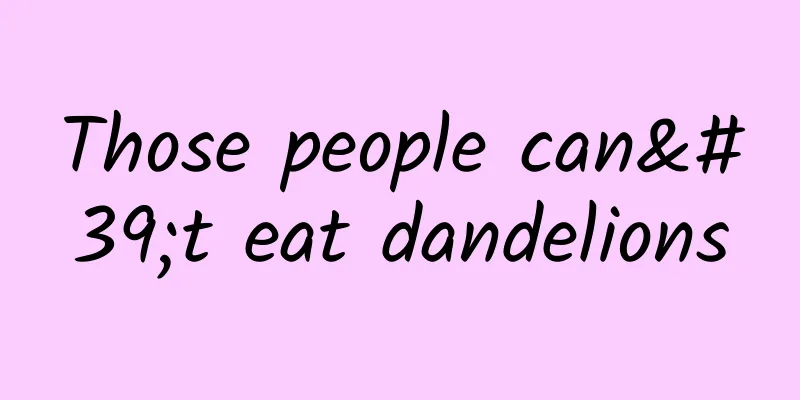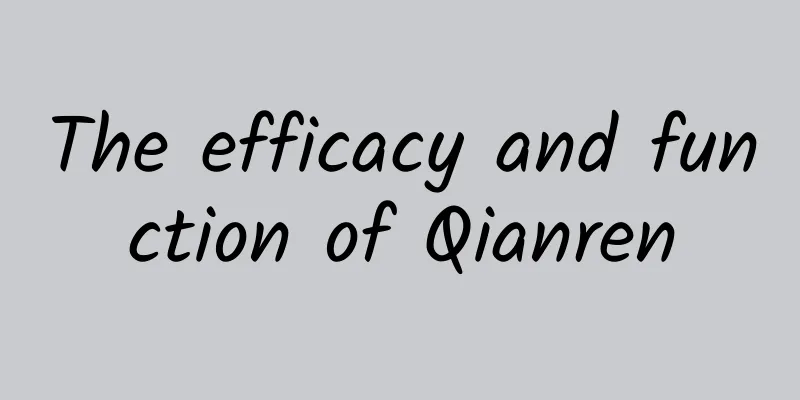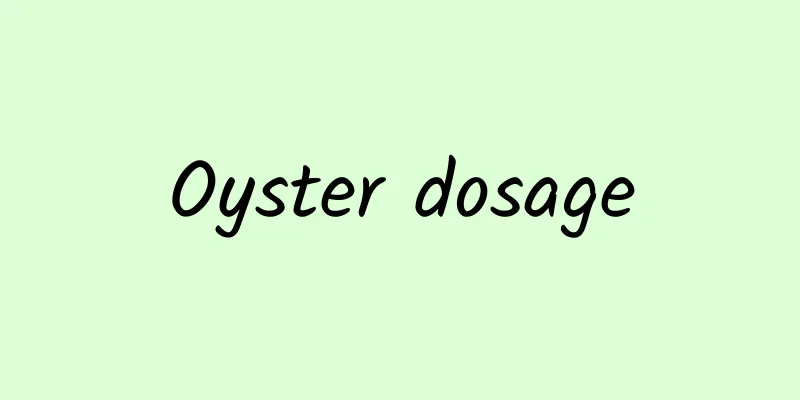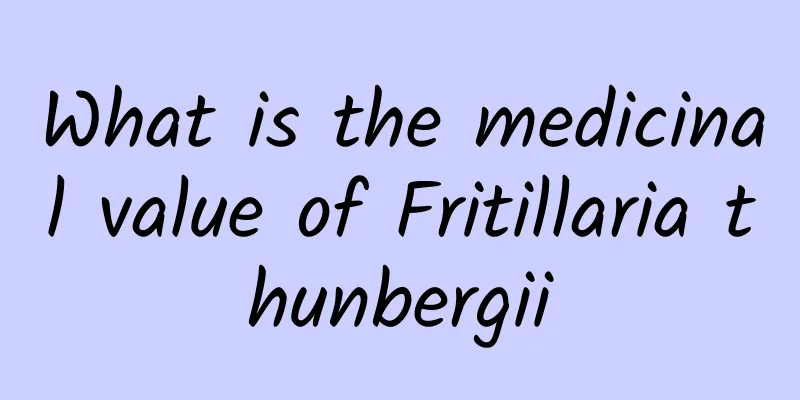Those people can't eat dandelions

|
Chinese medicine includes a lot of Chinese medicinal materials. There are many things that are common in our daily life, such as dandelion. Dandelion is often used as a Chinese medicinal material because it has excellent effects on treating some diseases of the human body, such as eczema, freckles removal, skin care, etc. But as many people know, many people have adverse reactions to some drugs. So as for dandelions, who should not use them? Let’s take a look at it together below. So who should not eat it? 1. It is contraindicated for people with infectious diseases or yin-cold diseases to use. 2. It is contraindicated for patients with yang deficiency, external cold, and weak spleen and stomach. 3. People with allergies should use with caution. What other benefits does dandelion have? 1. High in protein: The protein in dandelions is higher than that in spinach. A handful of dandelions can provide 14% of protein every day. Dandelions also contain all the essential amino acids needed by the human body. 2. Low in calories: In addition to stir-frying and eating, dandelions can also be soaked and drunk, just like tea vegetables. 3. High calcium content: Fresh dandelions are rich in calcium that is easily absorbed by the human body. 4. High in iron: Dandelions have a very high iron content. A handful of fresh dandelions contains about 1.7 mg of iron that can be fully absorbed by the human body. The human body needs about 15 mg of iron per day, so eating a few handfuls of dandelions can effectively prevent iron deficiency anemia. Dandelion greens are rich in minerals. In addition to calcium and iron, they are also a good source of copper, manganese, phosphorus and potassium. 5. Antibacterial: 50% fresh grass juice, using the plate trench method, has an inhibitory effect on Staphylococcus aureus and Salmonella typhi; 50% whole grass decoction, using the plate trench method, has an inhibitory effect on Staphylococcus aureus and Pseudomonas aeruginosa. 6. Detoxification, intestinal cleansing and anti-oxidation: Dandelion is actually a diuretic, which helps the kidneys to remove waste, prevents excessive salt absorption, helps the body excrete excess water and reduces edema. Dandelions can be eaten in spring to remove dampness, but it is not advisable to eat too much dandelions, as they are still needed to remove dampness! The best food for removing dampness is rice. The dehumidifying effect of xianmi has been recorded as early as ancient times. "Compendium of Materia Medica" records: xianmi can strengthen the spleen and stomach, nourish the lungs and clear away heat, and remove wind and dampness. Because "Xiang" represents prosperity, it shows that "Xiang rice" has the effect of activating blood circulation! |
<<: Are dandelion leaves or roots better?
Recommend
Science Museum丨How many alarm clocks are best for waking up?
The holidays are over and summer is quietly appro...
The difference between Atractylodes macrocephala and fried Atractylodes macrocephala
Many people may not know that Atractylodes macroc...
Carbon dioxide synthesizes protein. Will we be starving in the future if we don’t eat?
Tuchong Creative I believe everyone is familiar w...
Foot bath with Panax notoginseng powder
Soaking your feet before going to bed every night...
The efficacy of Schisandra and wolfberry tea
Schisandra chinensis is a common Chinese medicine...
Can Atractylodes macrocephala help lose weight?
There are many ways to lose weight, and diet is o...
Find a partner! I bet you never thought of this benefit.
One of the topics that elders talk about when the...
The efficacy and function of chicken feet seven
As people's living standards continue to impr...
The efficacy and function of Nandina domestica leaves
In fact, the occurrence of many human diseases is...
Can eating konjac help you lose weight? Pay attention to these two points!
01 Why is konjac so low in calories? Konjac has a...
What can you supplement by eating longan?
Longan is not unfamiliar to us. Eating longan reg...
Are children with big heads necessarily smart? The answer is...
Rumor: **** “Children with big heads are smart ” ...
The efficacy and function of Radix Ophiopogonis
Friends who don’t know about Ophiopogon japonicus...
Worse than staying up late! How harmful is “fragmented sleep”?
Review expert: Wang Xuejiang, professor at Capita...
Why is it so difficult to achieve "Internet freedom" at an altitude of 10,000 meters?
At a time when the Internet is highly popular, ma...









